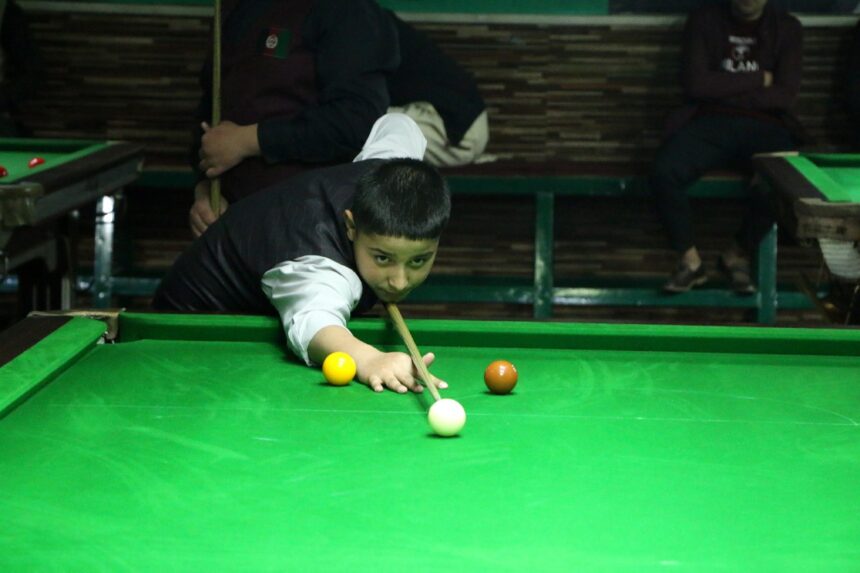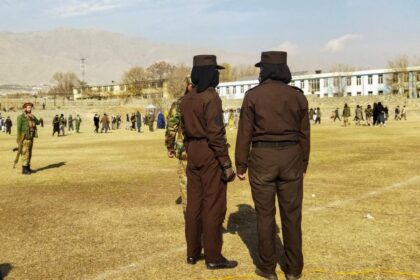RASC News Agency: In a nation already submerged in silence, repression, and creeping social decay, the Taliban regime appears to be preparing its next strike not against corruption or economic collapse, but against one of the last remaining sanctuaries of youth recreation: billiards clubs. Having already outlawed music, shut down cinemas, and banned chess as “un-Islamic,” the Taliban’s so-called Ministry for the Promotion of Virtue and Prevention of Vice is now reportedly considering the closure of billiards clubs across Afghanistan. Although no official decree has yet been issued, multiple sources in Kabul and several provinces have confirmed to RASC News that Taliban officials have begun discussing a crackdown on these clubs in internal meetings. This decision, emerging from the Taliban’s insular circles of ideological absolutism, threatens to extinguish one of the final threads of joy, community, and mental refuge left for Afghanistan’s disillusioned youth.
“No one has formally come yet, but we’ve heard from reliable sources that they’re planning to shut billiards down too,” said Rahmatullah Hosseini, a seasoned club owner in Kabul. “Every day, hundreds of young men come here not just to play, but to breathe. If they close us down, where will they go?” In the Taliban’s ideological framework, anything outside the rigid confines of the mosque and madrasa is viewed with suspicion, if not outright hostility. Activities like billiardscdefined by them as lahw o laeb or meaningless play are demonized as distractions from their vision of a “pure” Islamic society. Yet in a nation teetering on the edge of mental collapse, these modest spaces of recreation are among the very few lifelines that keep young people grounded, focused, and hopeful.
Faisal Hamidi, who runs a billiards hall in Herat, underscores the psychological value of these clubs: “In our city, youth are either unemployed, addicted, or trying to flee the country. Our club is one of the few places where they can find purpose, compete fairly, and make friends. If they take this from us, they leave us only with despair.” The Taliban’s approach to governance has consistently prioritized the enforcement of medieval codes over addressing the existential crises ravaging Afghanistani society. Rather than confronting the acute shortages of food, education, and employment, the regime chooses to wage war on pool tables and chess boards as though recreation itself were the greatest threat to national security.
Zaheer Sadat, a club operator in Balkh, expressed growing concern over the Taliban’s looming interference: “We heard a few weeks ago they’ll start inspecting clubs. They haven’t arrived yet, but the news alone has created fear. We don’t just run a business we support dozens of families. If they shut us down, we lose everything.” Social experts warn that the Taliban’s relentless suppression of social spaces is pushing Afghanistani society toward a psychological implosion. Youth deprived of safe outlets for interaction and expression are more likely to fall into addiction, criminality, or even extremism. The billiards clubs they seek to destroy are not dens of vice but bastions of calm in a country ravaged by chaos.
“The young men who today find purpose through a game of billiards could easily become tomorrow’s casualties of depression, radicalization, or exile,” said a Kabul-based sociologist. “This is not a government trying to build a society; it is a regime dismantling the very idea of one.” While the Taliban preach virtue, they have become the architects of cultural void and social misery. Their fixation with banning harmless, community-oriented activities reflects an authoritarianism so brittle that even leisure appears threatening. Their governance is not rooted in public service but in public suffocation. As the Taliban regime continues its ideological crusade against joy, diversity, and normalcy, Afghanistan slides further into a state of enforced cultural paralysis. What remains is a nation held hostage not by warlords or weapons but by a regime so allergic to modernity that it sees a pool cue as an enemy of the state.
RASC News Agency will continue to monitor the Taliban’s moves closely and will issue further reports should the regime formalize its campaign against billiards clubs a decision that may mark yet another descent into social erasure.






